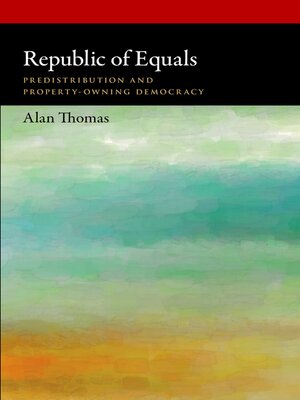Republic of Equals
ebook ∣ Predistribution and Property-Owning Democracy · Oxford Political Philosophy
By Alan Thomas

Sign up to save your library
With an OverDrive account, you can save your favorite libraries for at-a-glance information about availability. Find out more about OverDrive accounts.
Find this title in Libby, the library reading app by OverDrive.



Search for a digital library with this title
Title found at these libraries:
| Library Name | Distance |
|---|---|
| Loading... |
The first book length study of property-owning democracy, Republic of Equals argues that a society in which capital is universally accessible to all citizens is uniquely placed to meet the demands of justice. Arguing from a basis in liberal-republican principles, this expanded conception of the economic structure of society contextualizes the market to make its transactions fair. The author shows that a property-owning democracy structures economic incentives such that the domination of one agent by another in the market is structurally impossible. The result is a renovated form of capitalism in which the free market is no longer a threat to social democratic values, but is potentially convergent with them. It is argued that a property-owning democracy has advantages that give it priority over rival forms of social organization such as welfare state capitalism and market socialist institutions. The book also addresses the currently high levels of inequality in the societies of the developed West to suggest a range of policies that target the "New Inequality" of our times. For this reason, the work engages not only with political philosophers such as John Rawls, Philip Pettit and John Tomasi, but also with the work of economists and historians such as Anthony B. Atkinson, François Bourguignon, Jacob S. Hacker, Lane Kenworthy, and Thomas Piketty.







